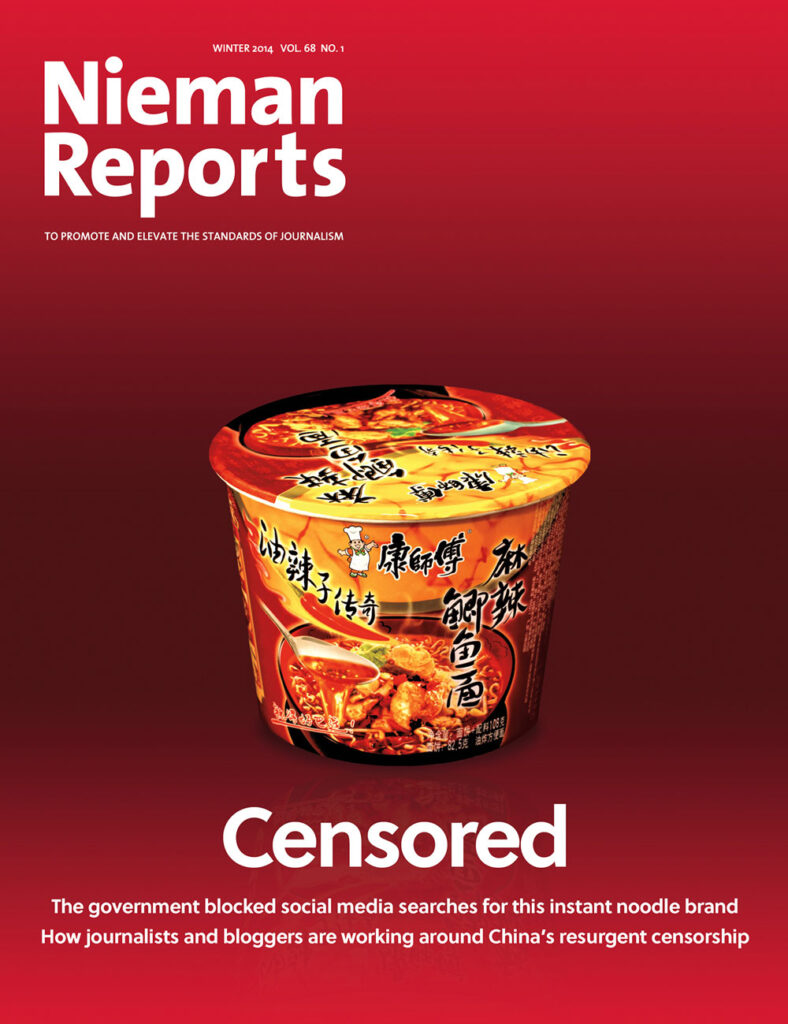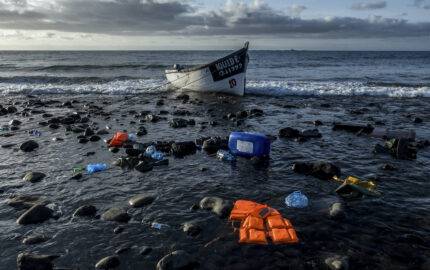inewsource grew out of the desperation that was sweeping newsrooms across the country in 2009. I was a senior editor for metro and investigations at The San Diego Union-Tribune, and I’d spent way too much time discussing potential layoffs. When I looked one way, there was a sprawl of deck chairs on what could be the Titanic. The other way? The deep black sea.
I jumped. The journey’s been exhausting and exhilarating and completely unexpected.
inewsource, on the campus of San Diego State University, is one of more than 100 nonprofit journalism centers across the U.S. Most of us have sprung up in the last five years. inewsource has three full-time reporters, who spend all of their time in the very tough world of investigative, accountability reporting.
But if you think being an investigative reporter is hard work, try finding the business model to support it. We journalists think we’re above talking about money, let alone asking for it. We’re too self-righteous for that. At least, I thought I was. Well, the cold hard facts about the future of accountability journalism lie in cold hard cash.
The biggest mistake I made in founding a journalism nonprofit was thinking that good work will automatically attract funding.
The more dubious news is that no one has figured out how to keep it going. A few, like ProPublica, were “born on third base,” as Chuck Lewis, my friend, inewsource board member, and founder of the Center for Public Integrity, said. They had a big benefactor.
Most of us, however, are funded by foundations and philanthropists, who are proud of our mission but not wild about being a long-term crutch. We’re launching membership campaigns and trying to get traditional media to pay for content and finding other services to charge for. (The New England Center for Investigative Reporting, for example, does very well with training and high school summer camps in investigative journalism.) The message we’re all hearing: You’ve got to diversify revenue. You never know when someone will kick out one leg of your three-legged stool.
I was a reporter, editor and manager before I leapt into the depths. But that didn’t prepare me to run a business. Four years into it—with some courses at USC and an executive program at Stanford behind me—I’m more comfortable asking for money. Today, inewsource has a solid plan. It’s not perfect. It’s not for-sure. But so far, so good.
Our key to sustainability (that’s profitability in the for-profit world) is a unique partnership we’ve forged with a public broadcaster in San Diego. It took time and trust to nurture the relationship, but together we are making a big impact while ensuring the financial viability of investigative work. Other nonprofits are partnering with public media as well, with varying success. Some have fee-for-content contracts. inewsource has gone further.
The inewsource team—two reporters, a data specialist, and me—is “embedded” in the KPBS newsroom, a two-year-old, concrete and glass space with all the newest technology. KPBS is the NPR and PBS affiliate in San Diego, with 11 reporters and a stable of original local news programming, including radio features on “Morning Edition,” a talk show at noon, and a half-hour nightly television news show. In exchange, we give KPBS our content, which ranges from Web posts and radio spots to interactive, searchable data and fully produced television and radio packages. Together, inewsource and KPBS reach an estimated 1.4 million people a week through public radio and television, the Web, and social media.
We each respect the other’s distinct mission. KPBS has mighty goals to serve its audience with all kinds of news and programming. inewsource has a single-minded goal: investigative reporting.
It’s around investigative reporting that we’ve found common ground for fundraising. That’s right, we actually approach funders, raise money together. And we’ve secured multi-year commitments. The quality of the journalism and the distribution network make a powerful argument for philanthropic support. There are many people out there who have capacity to give who care about the role of in-depth, accountability journalism in a democracy. It’s more important than ever that we talk to them about how their financial investment in us is an important way for them to show they care.
Nobody has found the magic answer to sustaining investigative journalism. Sheer force of will can’t do it. But passion can keep you going. It can be contagious. Believe me. The first time someone hears you speak and comes up afterwards to hand you a check, it will restore your faith and come a little closer to convincing you that there is no shame in asking for money to support one of the most important missions on the planet.
Lorie Hearn, a 1995 Nieman Fellow, is the executive director and editor of inewsource, a nonprofit she founded in 2009. She formerly was an editor and reporter at The San Diego Union-Tribune
I jumped. The journey’s been exhausting and exhilarating and completely unexpected.
inewsource, on the campus of San Diego State University, is one of more than 100 nonprofit journalism centers across the U.S. Most of us have sprung up in the last five years. inewsource has three full-time reporters, who spend all of their time in the very tough world of investigative, accountability reporting.
But if you think being an investigative reporter is hard work, try finding the business model to support it. We journalists think we’re above talking about money, let alone asking for it. We’re too self-righteous for that. At least, I thought I was. Well, the cold hard facts about the future of accountability journalism lie in cold hard cash.
The biggest mistake I made in founding a journalism nonprofit was thinking that good work will automatically attract funding.
The more dubious news is that no one has figured out how to keep it going. A few, like ProPublica, were “born on third base,” as Chuck Lewis, my friend, inewsource board member, and founder of the Center for Public Integrity, said. They had a big benefactor.
Most of us, however, are funded by foundations and philanthropists, who are proud of our mission but not wild about being a long-term crutch. We’re launching membership campaigns and trying to get traditional media to pay for content and finding other services to charge for. (The New England Center for Investigative Reporting, for example, does very well with training and high school summer camps in investigative journalism.) The message we’re all hearing: You’ve got to diversify revenue. You never know when someone will kick out one leg of your three-legged stool.
I was a reporter, editor and manager before I leapt into the depths. But that didn’t prepare me to run a business. Four years into it—with some courses at USC and an executive program at Stanford behind me—I’m more comfortable asking for money. Today, inewsource has a solid plan. It’s not perfect. It’s not for-sure. But so far, so good.
Our key to sustainability (that’s profitability in the for-profit world) is a unique partnership we’ve forged with a public broadcaster in San Diego. It took time and trust to nurture the relationship, but together we are making a big impact while ensuring the financial viability of investigative work. Other nonprofits are partnering with public media as well, with varying success. Some have fee-for-content contracts. inewsource has gone further.
The inewsource team—two reporters, a data specialist, and me—is “embedded” in the KPBS newsroom, a two-year-old, concrete and glass space with all the newest technology. KPBS is the NPR and PBS affiliate in San Diego, with 11 reporters and a stable of original local news programming, including radio features on “Morning Edition,” a talk show at noon, and a half-hour nightly television news show. In exchange, we give KPBS our content, which ranges from Web posts and radio spots to interactive, searchable data and fully produced television and radio packages. Together, inewsource and KPBS reach an estimated 1.4 million people a week through public radio and television, the Web, and social media.
We each respect the other’s distinct mission. KPBS has mighty goals to serve its audience with all kinds of news and programming. inewsource has a single-minded goal: investigative reporting.
It’s around investigative reporting that we’ve found common ground for fundraising. That’s right, we actually approach funders, raise money together. And we’ve secured multi-year commitments. The quality of the journalism and the distribution network make a powerful argument for philanthropic support. There are many people out there who have capacity to give who care about the role of in-depth, accountability journalism in a democracy. It’s more important than ever that we talk to them about how their financial investment in us is an important way for them to show they care.
Nobody has found the magic answer to sustaining investigative journalism. Sheer force of will can’t do it. But passion can keep you going. It can be contagious. Believe me. The first time someone hears you speak and comes up afterwards to hand you a check, it will restore your faith and come a little closer to convincing you that there is no shame in asking for money to support one of the most important missions on the planet.
Lorie Hearn, a 1995 Nieman Fellow, is the executive director and editor of inewsource, a nonprofit she founded in 2009. She formerly was an editor and reporter at The San Diego Union-Tribune



